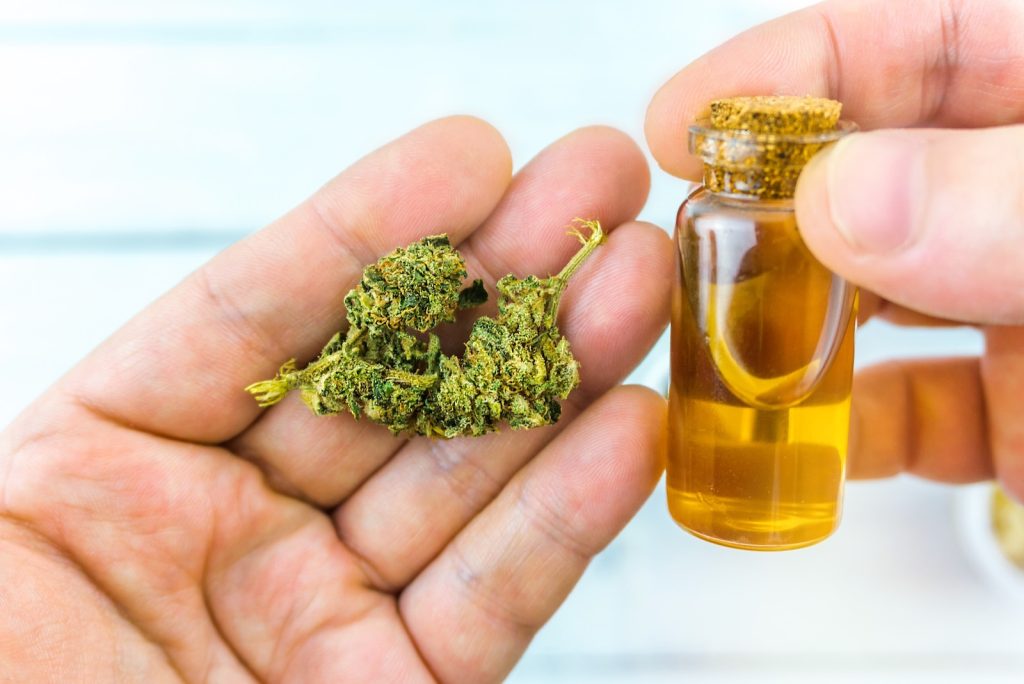Uncategorized
CBD and Cancer: Unveiling the Latest Research and Treatment Prospects
In the realm of medical advancements, the potential of CBD (cannabidiol) as a treatment option for cancer has garnered significant attention. As scientific research continues to delve into the intricate relationship between CBD and cancer, exciting possibilities emerge for both patients and healthcare professionals. This article delves into the latest research surrounding CBD and its role in cancer treatment, shedding light on the promising prospects that lie ahead. From exploring the science behind CBD’s interactions with cancer cells to investigating its potential therapeutic benefits, we navigate the evolving landscape of CBD and cancer treatment with a focus on cutting-edge research and its implications for patients.
Decoding CBD’s Interaction with Cancer Cells

At the forefront of the CBD and cancer connection lies a captivating interplay between cannabinoids and the intricate world of cancer cells. This fascinating relationship draws us into the realm of scientific exploration, where the mechanisms that orchestrate this interaction come to light. CBD, a prominent cannabinoid derived from the cannabis plant, engages in a complex dialogue with the body’s endocannabinoid system (ECS) and other cellular pathways, setting the stage for a potential revolution in cancer therapeutics.
The foundation of this interaction rests upon the endocannabinoid system, a network of receptors, endocannabinoids, and enzymes that regulates an array of physiological processes, including immune response, inflammation, and cellular communication. CBD, acting as a key player in this intricate dance, binds to cannabinoid receptors, namely CB1 and CB2, distributed throughout the body. Through this binding, CBD influences a myriad of cellular responses, effectively modulating the behavior of cancer cells.
A pivotal facet of CBD’s impact on cancer cells lies in its potential to regulate processes vital to their growth and proliferation. Scientific studies have unveiled CBD’s ability to hinder cell proliferation—a hallmark of cancer—by inducing cell cycle arrest. Moreover, CBD’s role in apoptosis, the programmed cell death crucial for maintaining healthy cell populations, holds promise for targeting cancer cells while sparing normal cells. Additionally, CBD’s modulation of angiogenesis, the formation of new blood vessels necessary for tumor growth, showcases its potential in starving tumors of their vital blood supply.
Metastasis, the spread of cancer to distant parts of the body, presents a formidable challenge in cancer treatment. Here, CBD once again enters the spotlight as a potential game-changer. Preclinical research has shown that CBD may impede the invasive potential of cancer cells by inhibiting their migration and adhesion to other tissues. This multifaceted approach to disrupting metastasis exemplifies the intricate mechanisms that CBD engages within the cancer landscape.
As we venture deeper into the synergy between CBD and cancer cells, the intricacies of this relationship become increasingly evident. The modulation of cannabinoid receptors, the orchestration of cellular pathways, and the potential to disrupt fundamental processes of cancer growth collectively weave a narrative of promise. While the journey to fully harness CBD’s potential in cancer therapy is ongoing, the unfolding scientific insights offer a glimpse into a future where this natural compound could stand as a formidable ally in the fight against cancer.
Unveiling the Therapeutic Potential of CBD in Cancer Treatment

The therapeutic potential of CBD in cancer treatment is a subject of growing interest and exploration. Research on CBD and cancer reveals its potential to mitigate various aspects of cancer progression. From its potential to induce apoptosis (programmed cell death) in cancer cells to its anti-inflammatory and antiangiogenic properties, CBD’s multifaceted effects offer a promising avenue for complementary cancer care. By uncovering the potential benefits of CBD, we shine a light on its ability to enhance the overall treatment landscape for cancer patients.
Bridging the Gap: CBD as a Complementary Cancer Therapy

As the realm of integrative medicine gains prominence, CBD emerges as a potential complementary therapy for cancer patients. CBD and cancer care can go hand in hand, offering relief from treatment-related side effects such as pain, nausea, and inflammation. We explore how CBD’s unique properties can enhance patients’ quality of life and well-being. By bridging the gap between conventional and alternative therapies, CBD opens new avenues for comprehensive cancer care.
Navigating the Future: Implications for Patients and Research
The evolving landscape of CBD and cancer research holds profound implications for both patients and the scientific community. Ongoing clinical trials and studies seek to unravel CBD’s potential in treating various types of cancer. From breast cancer to glioblastoma, researchers are exploring the specific mechanisms by which CBD exerts its effects and its potential as an adjuvant therapy. As patients and healthcare professionals navigate this dynamic field, we highlight the importance of evidence-based decision-making and collaboration in shaping the future of CBD and cancer treatment.
Unveiling CBD’s Potential in Cancer Treatment: A Landscape of Hope and Progress
The exploration of CBD and cancer treatment unveils a landscape rich with possibilities and promises. As researchers delve deeper into the mechanisms of CBD’s interaction with cancer cells and its therapeutic potential, patients stand to benefit from innovative approaches to cancer care. The fusion of scientific inquiry, patient advocacy, and medical expertise paves the way for a future where CBD plays a pivotal role in enhancing the well-being and treatment outcomes of cancer patients. As we continue to unveil the latest research and treatment prospects, the story of CBD and cancer unfolds as a narrative of hope, resilience, and transformative medical progress.

